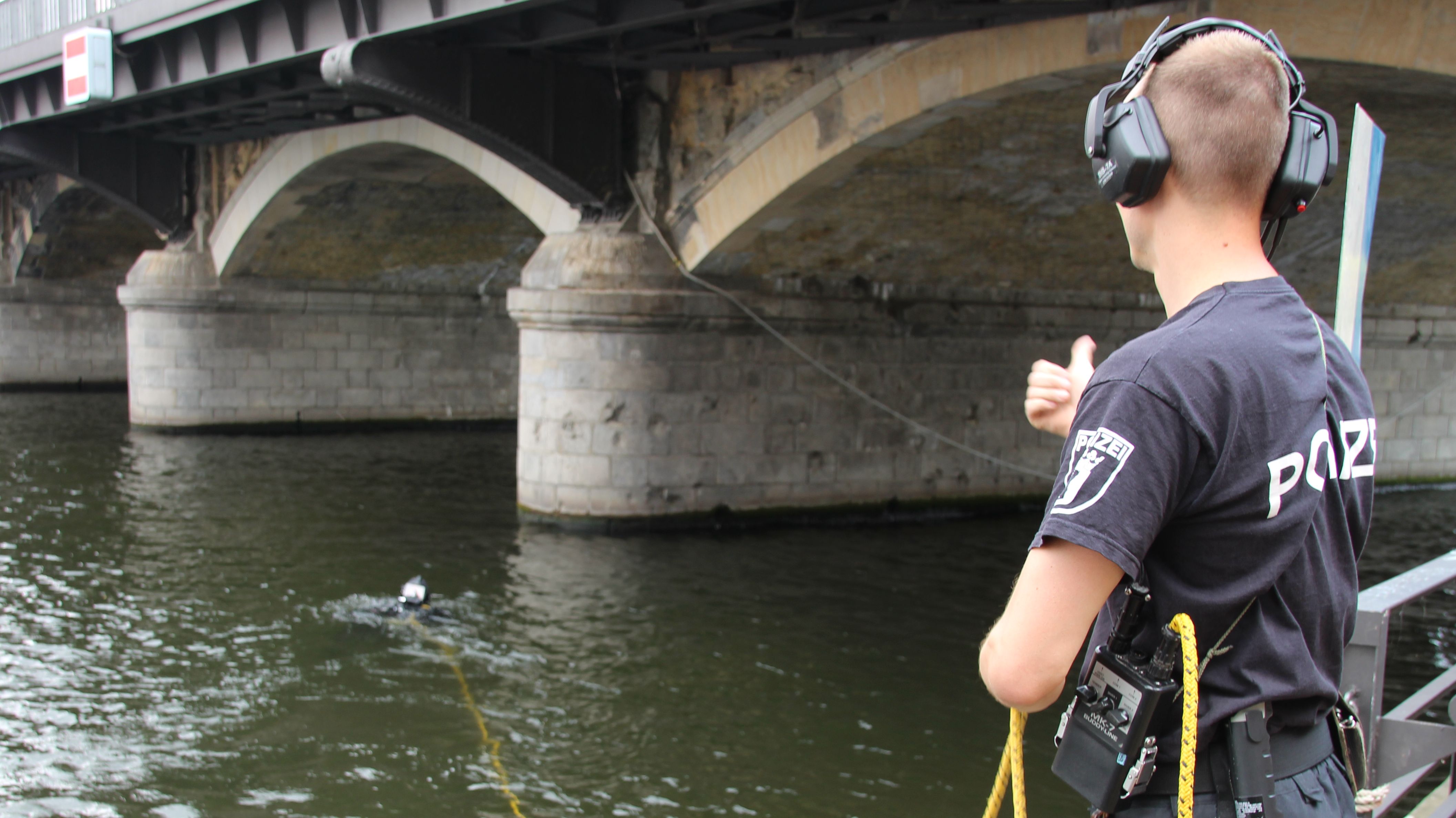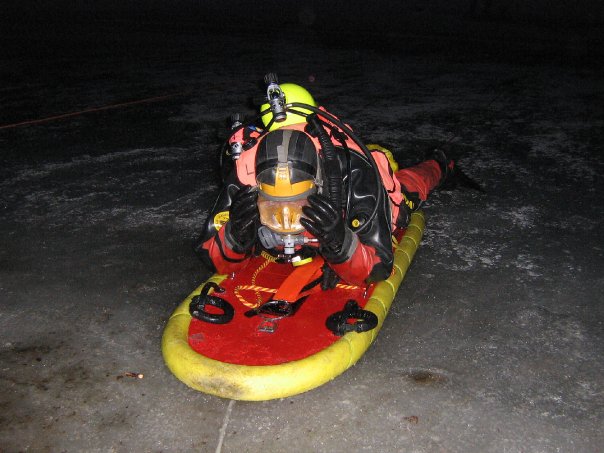Police diving on:
[Wikipedia]
[Google]
[Amazon]

 Police diving is a branch of
Police diving is a branch of

 Police diving is a branch of
Police diving is a branch of professional diving
Professional diving is underwater diving where the divers are paid for their work. The procedures are often regulated by legislation and codes of practice as it is an inherently hazardous occupation and the diver works as a member of a team. D ...
carried out by police
The police are a constituted body of persons empowered by a state, with the aim to enforce the law, to ensure the safety, health and possessions of citizens, and to prevent crime and civil disorder. Their lawful powers include arrest and th ...
services. Police divers are usually sworn police officers, and may either be employed full-time as divers or as general water police officers, or be volunteers who usually serve in other units but are called in if their diving services are required.
The duties carried out by police divers include rescue diving for underwater casualties and search and recovery diving for evidence and bodies.
"Public safety diving" is a term coined by Steven J Linton in the 1970s to describe underwater rescue, underwater recovery and underwater investigation conducted by divers working for or under the authority of municipal, state or federal agencies. These divers are typically members of police departments, sheriff's offices, fire rescue agencies, search and rescue teams or providers of emergency medical services. Public Safety Divers (PSDs) can be paid by the previously mentioned agencies or be non-paid volunteers.
Public safety diving
An extract from NYPD Scuba Team on what public safety diving includes: * Evidence recovery * Submerged body recoveries (from accidents/suicides/crime victims) * Anti-narcotics operations (inspecting ships hulls etc.) * Anti-terrorism operations (Explosive Ordnance Disposal) * Search and rescue operations * Other maritime law enforcement Due to the conditions in which accidents may happen, or where criminals may choose to dispose of evidence or their victims, police divers might need to dive: * In murky canals, lakes, and rivers * Currents that can run as fast as 6 knots * In intake pipes and sewers * In water towers under hostile environmental conditions which can include: * Sludge, mud, debris or thick vegetation * Under ice * At night time or with zero visibility * Frigid water, rough seas and weather * Strong currents * Water with toxins or parasitesRecreational rescue diver courses
Certification as a "Rescue Diver
Rescue Diver is a scuba diving certification level provided by several diver training agencies, such as PADI, SSI, SDI, and NAUI, Some professional training organisations expect a participant to be certified as a recreational rescue diver as a prerequisite for training as a professional rescue diver.
 For this purpose, diving training agencies such as Emergency Response Diving International (ERDI), the National Academy of Police Diving (NAPD), Team Lifeguard Systems, and Underwater Criminal Investigators have developed special courses to train divers on how to safely respond to situations where the hazards exceed those acceptable for recreational diving.
UCI (Underwater Criminal Investigators) was founded in 1987 to provide professional underwater criminal investigations training to the public safety diving community.
The National Academy of Police Diving (NAPD) was formed in 1988 by a group of police divers to create a national standard for police and public safety diver training and certification. It has helped provide training for police officers, fire departments, military divers, and environmental investigators in the following locations: North America, Central America, Russia, Australia, and the Caribbean.
In South Africa, public safety diving and police diving falls under the Diving Regulations to the Occupational health and Safety Act, and such divers are required to be registered as commercial divers by the Department of Labour, and training is done by registered commercial diving schools.
For this purpose, diving training agencies such as Emergency Response Diving International (ERDI), the National Academy of Police Diving (NAPD), Team Lifeguard Systems, and Underwater Criminal Investigators have developed special courses to train divers on how to safely respond to situations where the hazards exceed those acceptable for recreational diving.
UCI (Underwater Criminal Investigators) was founded in 1987 to provide professional underwater criminal investigations training to the public safety diving community.
The National Academy of Police Diving (NAPD) was formed in 1988 by a group of police divers to create a national standard for police and public safety diver training and certification. It has helped provide training for police officers, fire departments, military divers, and environmental investigators in the following locations: North America, Central America, Russia, Australia, and the Caribbean.
In South Africa, public safety diving and police diving falls under the Diving Regulations to the Occupational health and Safety Act, and such divers are required to be registered as commercial divers by the Department of Labour, and training is done by registered commercial diving schools.
Naui Worldwide Public Safety Dive Certification
{{DEFAULTSORT:Police Diving Professional diving Law enforcement techniques Underwater diving procedures
Professional public safety diving courses
 For this purpose, diving training agencies such as Emergency Response Diving International (ERDI), the National Academy of Police Diving (NAPD), Team Lifeguard Systems, and Underwater Criminal Investigators have developed special courses to train divers on how to safely respond to situations where the hazards exceed those acceptable for recreational diving.
UCI (Underwater Criminal Investigators) was founded in 1987 to provide professional underwater criminal investigations training to the public safety diving community.
The National Academy of Police Diving (NAPD) was formed in 1988 by a group of police divers to create a national standard for police and public safety diver training and certification. It has helped provide training for police officers, fire departments, military divers, and environmental investigators in the following locations: North America, Central America, Russia, Australia, and the Caribbean.
In South Africa, public safety diving and police diving falls under the Diving Regulations to the Occupational health and Safety Act, and such divers are required to be registered as commercial divers by the Department of Labour, and training is done by registered commercial diving schools.
For this purpose, diving training agencies such as Emergency Response Diving International (ERDI), the National Academy of Police Diving (NAPD), Team Lifeguard Systems, and Underwater Criminal Investigators have developed special courses to train divers on how to safely respond to situations where the hazards exceed those acceptable for recreational diving.
UCI (Underwater Criminal Investigators) was founded in 1987 to provide professional underwater criminal investigations training to the public safety diving community.
The National Academy of Police Diving (NAPD) was formed in 1988 by a group of police divers to create a national standard for police and public safety diver training and certification. It has helped provide training for police officers, fire departments, military divers, and environmental investigators in the following locations: North America, Central America, Russia, Australia, and the Caribbean.
In South Africa, public safety diving and police diving falls under the Diving Regulations to the Occupational health and Safety Act, and such divers are required to be registered as commercial divers by the Department of Labour, and training is done by registered commercial diving schools.
Public safety diving equipment
Companies like OMS and Zeagle, through the special requirements of public safety diving, have developed products specific for the task such as the OMS chemically resistant BCs, for diving in polluted water orHAZMAT
Dangerous goods, abbreviated DG, are substances that when transported are a risk to health, safety, property or the environment. Certain dangerous goods that pose risks even when not being transported are known as hazardous materials ( syllabi ...
conditions and Zeagle's SAR and 911 variation of their Ranger model BCD that have features like harness for helicopter lifts and swift-water work.
History
In Britain, in the early years of theBritish Sub-Aqua Club
The British Sub-Aqua Club or BSAC has been recognised since 1954 by UK Sport as the national governing body of recreational diving in the United Kingdom.
The club was founded in 1953 and at its peak in the mid-1990s had over 50,000 members d ...
(BSAC), police often called on BSAC branches to dive to find submerged bodies, before the police started their own diving branches.
See also
* * *References
External links
Naui Worldwide Public Safety Dive Certification
{{DEFAULTSORT:Police Diving Professional diving Law enforcement techniques Underwater diving procedures